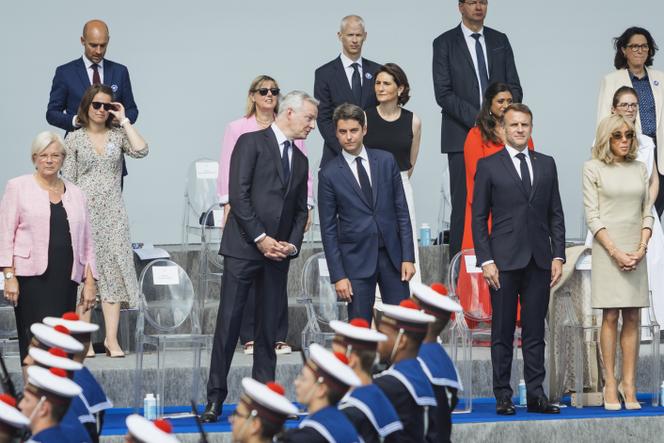


On Tuesday, August 27, Emmanuel Macron launched a new round of talks to find a prime minister, without the left-wing Nouveau Front Populaire (NFP) alliance, who declined to participate, or the far-right Rassemblement National (RN). The day before, the French president had ruled out appointing the NFP's candidate for prime minister, Lucie Castets, even though the alliance had won the most seats in the July snap elections.
Is France in the midst of a political or institutional crisis? Benjamin Morel, a political scientist and constitutional expert, lecturer at the University of Paris-Panthéon-Assas, answered Le Monde's questions.
He's not right, but he's not wrong either. Article 5 is extremely vague. It defines the broad outlines of the role of the president but does not confer any particular power, competence or role with regard to the appointment of a government.
"Institutional stability" is more of a political argument than a legal constraint. There's a lot of talk about "the spirit of the Constitution," an expression I find a little stupid. The current situation is about law or politics, not about spiritism.
The Constitution simply states that the president appoints whoever he likes and that once he's appointed someone, it's up to the Assemblée Nationale to tell him he's been wrong by voting a motion of no-confidence. Appointing Lucie Castets is by no means an obligation, and it's true that she would probably be overthrown within 48 hours. Nor is it forbidden.
In recent weeks and months, there has been confusion regarding the notions of relative majority and minority government. From a constitutional point of view, the interesting one is the second one: a government that doesn't have a majority, of course, but also doesn't have a majority to overthrow it.
This was the situation from 2022 to 2024 when MPs from the [conservative] Les Républicains (LR) party did not overthrow Macron's majority. This was also the case from 1988 to 1993, when centrists and communists, alternately or together, did not vote for a motion of no confidence against socialist governments. A government led by Castets cannot stand, because a priori it would have a majority to overthrow it. So there is no rejection of democracy.
You have 60.36% of this article left to read. The rest is for subscribers only.
